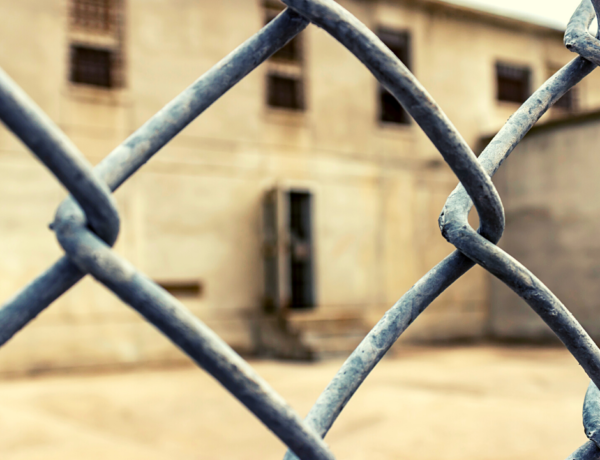By Fernando Rivas
Time in prison is something to be got through, something to survive – a hurdle. Inside, we don’t measure it in terms of work hours vs leisure hours, dinners, parties, weddings, outings. We don’t need to calculate trips or commutes. We have few appointments; those we do have being mostly for medical or disciplinary issues, maybe for worship services, exercise in the yard, a visit to the library. Lately, with COVID lockdowns, there are even less appointments, less classes, less movement within the confines of this low security federal compound. Now, there are fewer goalposts to keep track of the hours and the days, the months and the years, little distinction between weekdays, weekends or holidays, even birthdays. It’s all a blur.
Inside, we chuckle at the reaction to COVID lockdowns in the ‘free’ world. After a month or two all of you out there were coming unglued, chomping at the bit, having nervous breakdowns, experiencing ‘trauma’. Psychologists were suddenly in high demand, working overtime. Radio pundits were giving advice, running down dramatic statistics. People were anxious, they felt trapped, they’d lost their sense of purpose. Parents were being driven to distraction by having to stay home and supervise and school their kids. People complained about ‘cabin fever’. There were reports of a steep rise in abusive behaviors and addictions. Political violence erupted.
Welcome to the club. Now you’ve gotten a small taste of what prison feels like.
My wife complains all the time on the phone: “We’re on lockdown too!” I don’t argue. What I want to say is: “You can go outside, get in a car and drive to the beach. You can go anywhere you like if you wear your PPE mask.” All we can do in here is sit around or walk in circles, surrounded by chattering, screaming, hostile inmates, cinderblock walls, televisions that are lately on the blink and intermittent due to cable reception problems.
No. Our lockdown is not quite like YOUR lockdown. And it’s bound to last a LOT longer.
I don’t know what other inmates do to keep track of time. I know that some have calendars and they scratch off days. Some watch serial programs on TV or sports. Those events provide not just hypnotic escape from our monotonous condition but also a set of time coordinates, a locus point: the Nova special on Wednesday; the basketball game on Saturday; American Idol; Love and Hip Hop… anchor points that you await and then leave behind. Islands of consciousness. Safe havens from the bottomless pit of deadly boredom.
I’ve developed my own (and maybe unique) method of measuring time: I look at my soap bars or the content of my shampoo bottle. One soap bar equals roughly four- to five-days. One shampoo bottle (Alberto VO5) equals maybe four- to five-weeks. One toothpaste tube equals around three weeks. Whenever I need to renew these items from the commissary, I know I’ve bucked another block of time in my sentence.
Another system I use is what I call the ‘timekeepers’ method. I ask other inmates (and do so diplomatically), friends and acquaintances, to tell me how much time they have left on their sentences. Those who will leave before my sentence has elapsed will provide virtual goalposts: inmate #1 leaves in two months; inmate #2 leaves in two years; inmate #3 in four years; etc. Those who will be here beyond the end of my sentence do not provide me with adequate goalposts to determine my remaining time.
You may find a flaw in this system. What if an inmate is released early? All my timekeepers are sex offenders. They are NEVER released early, unless…
I have to concede: my system is not failsafe. Brad, my 18-month timekeeper, died of cancer a few days ago. There was a service in the chapel. Brad had less than five months to the door. He’d been my goalpost for thirteen months. He’s the ninth non-violent porn offender I’ve seen die in the course of my sentence in federal prison (roughly 1.125 inmates per year). Brad was not a close friend but, before COVID, when we still used to take our meals in the chowhall, he’d often trade me his breakfast milk for sugar packets. He was an avid coffee drinker. He was a close friend of a guy who was my bunky when I first arrived at this compound. That guy, Rob, left prison in 2019. He’d been my one-year timekeeper. He used to write but we haven’t heard from him again. After he left prison, Brad became my next timekeeper.
I continue to use my fallbacks: shampoo bottles, soap bars, notebooks, toothpaste tubes, typing ribbons. Time measured in consumables. Another Brad, Brad #2, (a sex offender) will be leaving here in one year. That Brad appears to be in decent health. I’m counting on him to make it. Honestly though, I didn’t see Brad #1’s death coming. He was relatively young and healthy almost to the end. And yet, the last time I saw him about a month ago, he looked like the walking dead, 100-pounds lighter, leaning on a cane, barely able to talk. You don’t want to get sick here. Medical care is way under par.
Time: it’s something to get through. To survive.
Brad #1 didn’t survive it. His time ran out. I’m rooting for Brad #2. I root for all my timekeepers. Always.
Maybe my concept of human goalposts comes off as a bit sociopathic. I don’t see it that way. It’s just another effect of being locked down, not much different from the way the news media keeps counting the COVID dead, keeping track of the pandemic in human lives gone. Goalposts.
The vaccine is rolling out, but time too rolls on.
It crushes all of us.





No Comments